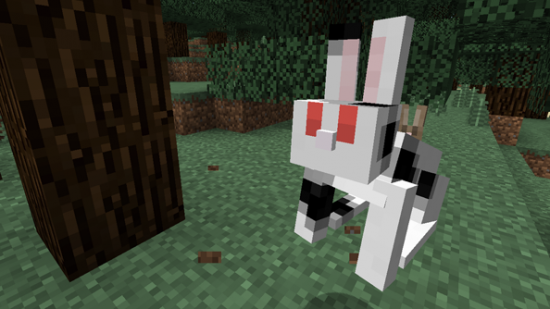Mojang made 816 million ($128 million) Swedish kronor in 2013. That’s up from 326 million kronor the previous year.
It doesn’t quite match the figures of Candy Crush monarchs and former Notch employers King, who raked in $1.88 billion last year. But it’s worth remembering that King now employ 665 people, while Mojang is still a studio of 34 – promoting and updating a game now over five years old.
All 34 are now doing rather well for themselves.
Mojang do plenty else that isn’t Minecraft these days, of course: tactical CCG Scrolls became profitable after just one week of open beta in June, and the company’s Minecraft Realms service, which provides secure multiplayer servers to parents in exchange for a subscription, was launched in Sweden in the latter half of the year.
But Minecraft was responsible for most of 2013’s revenue, which climbed 38% to 2.07 billion kronor. 30% of the cash came from the game’s Xbox and PlayStation versions, about a quarter from mobile, and some from merchandising, including Mojang’s deal with Lego – but the 38% majority still comes from Minecraft on the PC.
Improved payment options in countries including Poland, Brazil and Japan have helped profits too. The company celebrated with Christmas dinner – after which they handed out sizeable bonuses to all of their staff.
Oddly enough, Mojang’s largest spending in the last year was for the continued use of Minecraft’s intellectual rights. The studio paid 821m kronor into a separate company owned by Notch, according to Mojang Chief Financial Officer Karin Severinson.
2014 is likely to be Minecraft Realms’ year, as it rolls out across the world. Mojang CEO Carl Manneh said a year ago that it’s expected to bring in “more money than the game itself”. And then, of course, there’s the Hollywood Minecraft movie to think about. But what would like to see them make? Y’know, as game developers?
Thanks to IDG and the Wall Street Journal.
